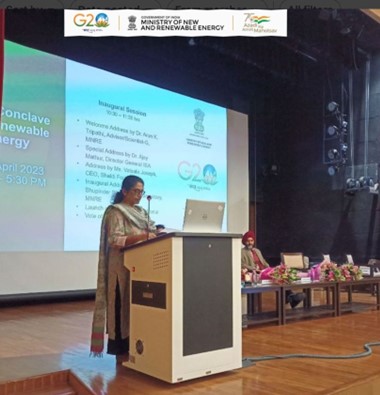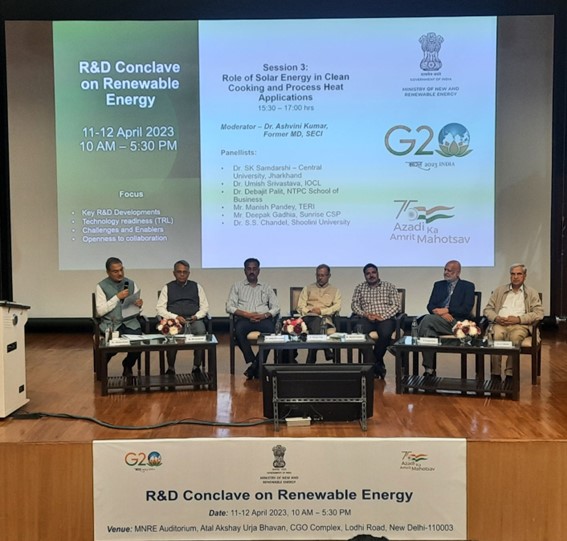Research and Development in the Renewable Energy (RE) sector have been primarily pursued by various leading academic institutions in India. Successful R&D models throughout the world show a consistent trend of the close-knit industry–academia – finance-government collaboration. MNRE organised the R&D Conclave, in association with Shakti Sustainable Energy Foundation to bring together a diverse set of stakeholders representing academia, research institutions, industry, funding agencies, start-ups, as well as policymakers to discuss catalysing the RE ecosystem in the country, highlight the latest R&D developments, scale up adoption of industry-ready technologies, and collaborative R&D efforts between different stakeholders.

Vatsala Joseph, CEO, Shakti Foundation opened her remarks by highlighting the ambitious target of 500GW by 2030 & Net Zero 2070 goals. “Our country has the potential to being a global leader in Renewable Energy,” she said. To achieve this goal, it is pertinent for India to focus on developing cost-effective renewable energy technology. This requires requisite focus on fundamental research and development, by both private and public institutions and testing & validation of the new technology being developed. These developments will be possible through comprehensive public private partnerships, especially on R&D and enhanced collaboration between the academia, industry, and the government. She highlighted that the national conclave on R&D in RE is a great platform to discuss pertinent issues and collaboration activities in this sector.

Dr Ashvini Kumar, Former MD SECI, Technical Advisor, Shakti, moderated the session on ‘Role of Solar Energy in Clean Cooking and Process Heat Applications’. “R&D efforts can play a significant role in advancing the use of solar energy for clean cooking and industrial process heat applications. By developing innovative designs, materials and storage solutions, as well as addressing barriers to adoption, R&D can help drive the widespread adoption of more efficient, and cost-effective clean tech innovations in industries, contributing to a more sustainable and cleaner energy future,” he said . The focus areas included recent advances in clean cookstove/clean cooking technologies for residential and industrial purposes and solar thermal for process heat applications. The discussions brought out challenges such as no paradigm shift in technology observed over the years, most clean cooking solutions are similar, structured R&D on clean cooking is missing, limited buying capacity of consumers, etc.
Koyel Kumar Mandal, Chief of Programmes, Shakti, moderated the session on ‘Enabling Ecosystem for Upscaling Clean Tech Innovations’. The key takeaways from the session included accelerators such as the Climate Collective offer to support growing startups through mentoring, training, investor connects, pilot-projects/corporate connects. The discussions brought out challenges such as limited investors/venture capitalists for technical solutions because of lack of understanding, inability to evaluate scalability potential of clean technologies and long gestation periods associated with such solutions and lab support needs for deep technologies also differ which is often difficult for incubators to identify and provide. The session concluded by highlighting that MNRE’s support is crucial to support cleantech incubators/accelerators identify and partner with cleantech labs. Blended finance that pools in resources from the ministry and philanthropies/ investors to scale up research and commercialisation.
